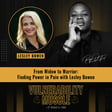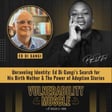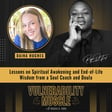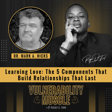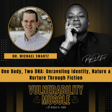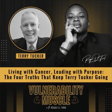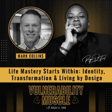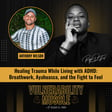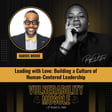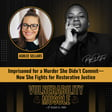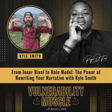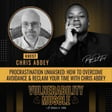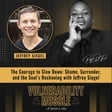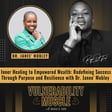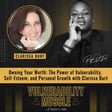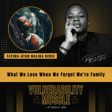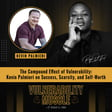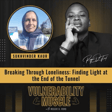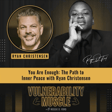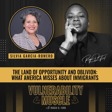
045 - The Brown Mama Bear: Advocating for Black Children in Predominantly White Schools
"Let the hard things in life be fractions—not racism."
In this powerful episode of Vulnerability Muscle, Reggie D. Ford sits down with Shanera Williamson, host of the Brown Mama Bear podcast, for a deeply moving and necessary conversation about raising Black children in predominantly white schools, reclaiming generational stories, and the spiritual responsibility of parenting with presence, identity, and intention. Shanera shares raw reflections on the intergenerational trauma passed down from a grandfather who survived the Wilmington Massacre of 1898, her own navigation of private Christian schools built on segregationist foundations, and the pain of realizing she once unknowingly prioritized academic prestige over her daughters’ emotional well-being.
With grace and accountability, she details how apologizing to her children for past decisions deepened their relationship and empowered them to thrive—and how now, as a fierce advocate, she equips other mothers to do the same. If you've ever questioned how to raise whole, resilient children in a fractured society, this conversation will meet you where you are and lovingly challenge you to go further.
Call to Action:
This is more than a parenting episode—it’s a blueprint for legacy. Tune in now to hear Shanera’s five-step plan for raising racially conscious, emotionally grounded kids, and why she believes mothers can dismantle racism just like they changed drunk driving laws. Share this episode with a parent, educator, or advocate who needs it—and flex your vulnerability muscle with us.
Contact Info:
Guest – Shanera Williamson
Website: https://brownmamabear.com
Instagram: @brownmamabearpodcast
Email: shanera@brownmamabear.com
Host – Reggie D. Ford
Website: https://reggiedford.com
Socials: @reggiedford on all platforms
Key Quotes & Takeaways:
- “Let the hard things in life be fractions—not racism.”
- “I apologized to my daughters for the harm caused by choosing prestige over protection. That apology changed everything.”
- “My grandfather survived a massacre by hiding in a cemetery. I honor him by helping other mothers protect their children from invisible violence.”
